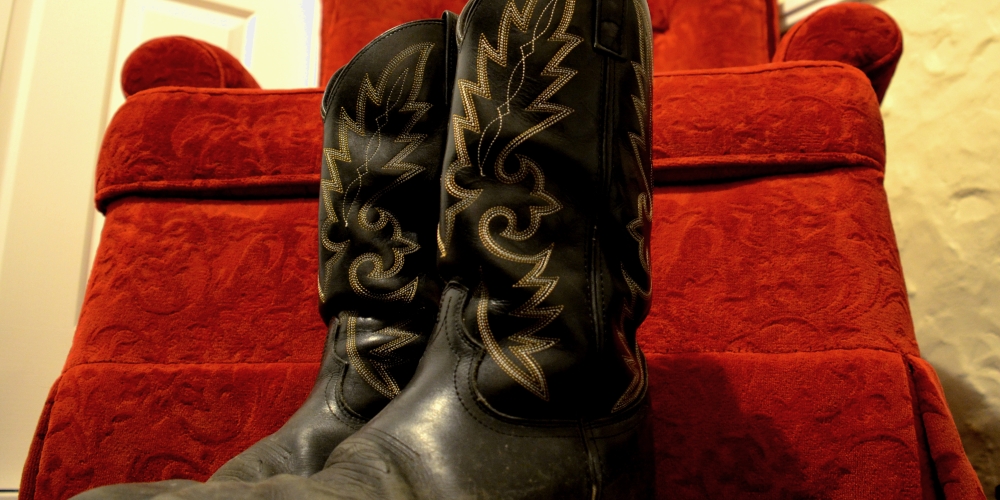Before I discovered books, coffee, women and the sexy smoulder of the city, I desperately wanted to grow up and be a cowboy.
Don’t giggle, it’s true.
And now that girls-on-the-farm are making a splash on the Australian fiction scene, this week I decided to take a look at Fiona Palmer’s The Family Farm, after the challenge set by my sister Jess: cowgirl, horse-riding, jeans-wearing, cotton-picking, Brooks and Dunn listening bad-ass.
The one rule I had to follow: “For the love of all that is country, do not ruin this book for me”. And while I can’t really say the book was my cup of tea, I did find myself (albeit begrudgingly) appreciating the change of pace.
At a fundamental level, this is a coming of age story with a tough tomboy protagonist who is on all fronts gritty, rough and out to prove she can play just as well if not better than the men.
This wasn’t that hard to appreciate, but after a while Izzy (cute and righteous protagonist) got a bit tiring.
Mostly because every man in the book was either a stand-over patriarchal nightmare harping repeatedly on the outdated girls-aren’t-as-tough-as-boys routine or they were thrown into the dreaded obviously-has-a-hidden-agenda basket. Obligatory finger quotey things.
As a fully functioning member of the male species (yep, I’ve checked), this one-size-fits-all attitude turned a bit difficult after about the 200 page mark.
At the risk of sounding like a moaning man, I got the impression that the only male presence in the book was just as generalised and tacky as the women and seemed to really disregard the progress made towards gender equality and nuance over that past 60-odd years.
On the other side of the gender fence you had Izzy’s mum, who in 200 pages didn’t appear outside of the kitchen or anywhere but standing faithfully by her man, while the younger girls were either in silent awe of Izzy and her seemingly inexhaustible righteousness towards men, sex and sexuality or were tagging along behind their own manly-hairy-manly men.
Having said all that I did appreciate the book for what I think it was meant to be.
Once I realised this wasn’t a book written for me (fully functioning not-so-manly man), rather written solely it seemed for women (love it or hate it as they might), I began to appreciate the book as media made for women by women.
Similarly, once I stopped expecting the likes of Virginia Woolf’s Orlando, and forced myself to just kick back and enjoy the chick-lit, I had a fine old giggle at the 400-odd pages of thinly disguised lady porn.
With a hero who can’t make an appearance without a description of his tight bod, lean features and toned arms, and a heroine who is determined to resist his cheeky and roguish advances, before giving in to one brief, heated moment in the dark, it has to be said that this is type of fiction has grown out of the very popular styles set by the likes of Mills and Boon.
So, if you’re looking for a book that challenges traditional gender roles in new and interesting ways and makes you rethink the institutionalised structures that are masculine and feminine, read Plath. She’s brilliant.
The Family Farm is more of a no-demands-made cheeky chick-lit and if you’re looking for an easy book that lets you go to bed with a cute cowboy for a couple nights, look no further than Fiona Palmer.
Sending you the smoulder with a hint of crazy-eye from the friend who payed extra close attention to the sexy bits in the hope of becoming a better hunk,
Curiosity.
